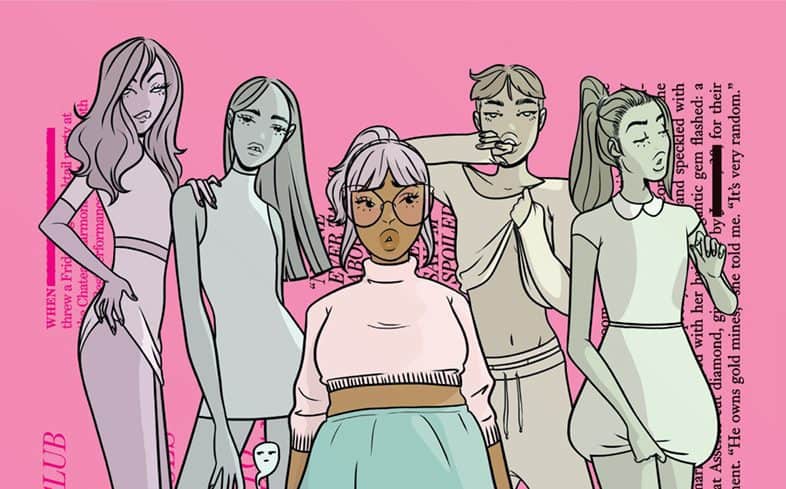Advance Review: Image Comic’s “Twisted Romance” Issue 2

Have you missed me guys? Aww, that’s so sweet (please, God, let it be sweet). But we have business to attend to. I’m talking about Image Comic’s second issue of Twisted Romance. Just like the first issue, there are two comic stories and one narrative fiction piece.

Gutiérrez’s art and De Campi’s dialogue-style make for a cute introduction to characters that aren’t always at the forefront of what audiences consume. This story should definitely continue.
Vita Ayala concentrates her efforts on love in the fiction piece, Back at Your Door. It features college student, Luz Lopez, and her intense crushes on fellow students Adrienne and Maddison. Luz has mixed feelings about her platonic relationships, but realizes some friendships should not cross that forbidden line. Or…maybe everything is in her head and she can have all she is looking for in a partner (or partners). No spoilers from me, you guys are going to have to read this one on your own.
The last comic is by Meredith McClaren entitled, Would You Even Know It? A nameless woman and her AI laptop have a discussion about the nature of love and whether it’s possible for the two of them to actually be “in love” with each other. I like that McClaren keeps both characters nameless. It makes you guess who is the true human. Or if it’s even humane to treat an artificial intelligence like a person.
We see a woman and a laptop, but neither of them operates under normal conditions for a laptop or a woman. Then again that view may come from my own bias, which I now realize may be McClaren’s point. The lines of attachment and romantic love are blurred as the woman and her laptop define her biological nature and the mechanics of the laptop. Each one coexists and co-depends on the other, but can there ever really be more?
What do you guys think?
You can purchase the digital edition from Amazon or subscribe to the print editions at Image Comics.